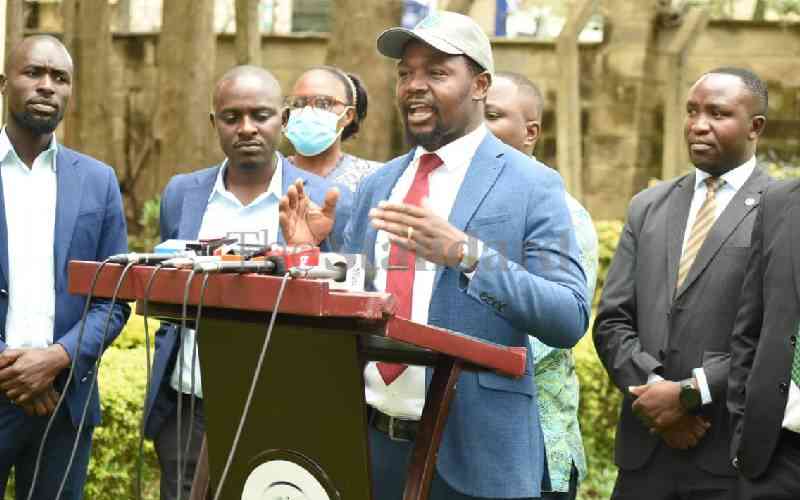Marshall McLuhan is the person credited with introducing the notion of the global village. The Canadian scholar is recognised as the father of media studies as we know them today. In 1962 he wrote about a seamless futuristic global community.
Modern communication technology was in the labour ward. McLuhan looked into the seeds of time. He saw great wonders in this global village. He predicted the coming of the Internet, as we know it today, and its benefits. Earlier, George Orwell had in 1948 predicted the coming of closed circuit television, after the fashion of the telescreen in the surrealistic novel 1984. These great minds suggested that the complexity and speed of communications would create a universal human awareness. Something happening in one corner of the world would reach the rest of the world instantly. And are we not there today?
We are one huge global village. Embedded journalists bring us happenings on battlegrounds straight into our living rooms and bedrooms, even as the war is happening. The whole world will be glued to TV sets for 90 minutes to watch a football event in a stadium in Rio de Janeiro, Madrid or Cape Town.
In his time, Dr Martin Luther King Junior marvelled at the wonders of science. For, was not science already chaining time and shrinking space? You could leave Tokyo in the morning of Saturday February 6 and reach Washington DC in the evening of Friday February 5. This is to say that you arrived before departing! If they asked you, “When did you leave Tokyo?” you could answer, “I left tomorrow.”
Such are the marvels of science and technology. And these miracles have redefined us and will continue to do so. It is increasingly foolish to look at foreigners as outsiders in the traditional sense. Indeed, science and technology is increasingly making the Westphalian notion of the nation-state meaningless. There are virtual borders that are crossed in cyberspace without the need for passports and visas. They make prefecture and restriction of space completely nonsensical. But have the gains of science and technology restored us into Thomas Hobbes’s “state of nature” In 1651, Hobbes imagined society in its original stages. He understood that human beings once lived as free molecules in the wild. There were no laws, no regulations. Everyone depended on sheer might to survive to the next day. It was a mercilessly competitive world. Has science and technology redefined competition in the global community?
Human beings can no longer sensibly claim exclusive rights to physical space in this day and age of cyberspace. Commercial and political protectionism of yesteryear will not work today. Draconian regimes across the world have failed to lock out information they consider harmful to their dictatorial interests. And now inefficient and slovenly business communities are taking the beating. In open commercial environments, technology savvy entrants are ringing circles around unimaginative slowcoaches. This saying was never truer, “The quick brown fox jumped over the lazy dogs.” That is the alphabet of competition. The global village is a ruthless competitive jungle. Only the finest will survive. You must compete on world-class standards. Even the village carpenter in Emanyulia knows that imports are here. He must beat them on price, quality and service. If he cannot, he is cooked. He cannot blackmail people with emotions and sentimentality about “patriotism to the village” and that kind of claptrap. The coffin from Hong Kong is here to bury his business.
The African endogenous business community must wake up to these realities or perish. Taxi operators in Nairobi and in Accra must embrace this reality. In the emerged global village, you have to be an innovator. But if you lack the capacity for innovation, then adapt, adapt, adapt — or perish. In 1962 Everett Rogers, another communications scholar, popularised the notion of diffusion of innovations. Innovators sit at the top of society. They are risk takers, willing to discover new things. When the rewards come, early adapters jump on board. Such people are aware of the need for change and will benefit from innovation. Both categories are leaders.
Then there is the early majority. These are not leaders. They cannot lead. However, they adapt new things before the average person does. But they are slow. They must see evidence that something is working before they embrace it. Then you have the late majority, the doubting Thomas lot. They are humdrum doubters and disputers. By the time they embrace anything, it is actually no longer new. For, newer things have arrived – and they are busy doubting them. This is where Africa largely resides, in the gutters of later adoption.
Late adapters are lucky that there is still another class — a clueless category of laggards. They are tied down to tradition and extreme resistance to change. Some don’t even know that things are changing. They are the type that will not even read this column, for they don’t even know that it exists. They are tethered to non-productive old methods in a tired old world.
If Nairobi’s taxi operators are not laggards, then they are at the very best a late majority. You may have seen that Kenya’s taxi operators are up in arms against new entrants from the USA, called Uber. The newcomers have arrived fully loaded with modern cyber technology that is sending shivers down the spines of the competition. You call them online see them on GPRS maps as they come your way. They arrive within five minutes. They are clean, courteous, efficient and cost almost half of what the others charge. Because of this, the late majority and laggards in this industry are throwing tantrums. Rather than shift their paradigm, they want the government to throw out Uber! Such is the psyche that has kept Africa chained to poverty in an affluent global village. The continent must wake up to the benefits of science. If we cannot be innovative, if we cannot adopt, can we at least adapt?
 The Standard Group Plc is a
multi-media organization with investments in media platforms spanning newspaper
print operations, television, radio broadcasting, digital and online services. The
Standard Group is recognized as a leading multi-media house in Kenya with a key
influence in matters of national and international interest.
The Standard Group Plc is a
multi-media organization with investments in media platforms spanning newspaper
print operations, television, radio broadcasting, digital and online services. The
Standard Group is recognized as a leading multi-media house in Kenya with a key
influence in matters of national and international interest.
 The Standard Group Plc is a
multi-media organization with investments in media platforms spanning newspaper
print operations, television, radio broadcasting, digital and online services. The
Standard Group is recognized as a leading multi-media house in Kenya with a key
influence in matters of national and international interest.
The Standard Group Plc is a
multi-media organization with investments in media platforms spanning newspaper
print operations, television, radio broadcasting, digital and online services. The
Standard Group is recognized as a leading multi-media house in Kenya with a key
influence in matters of national and international interest.





